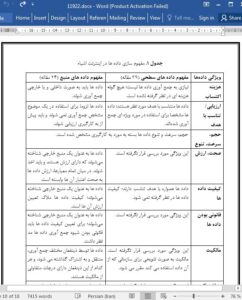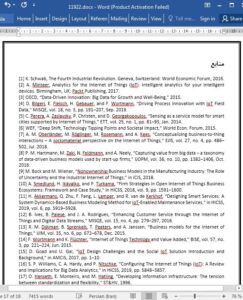Abstract
By enmeshing the digital and physical worlds, the Internet of Things is envisioned to generate a wealth of real-world data which enables new ways of creating value based on data. Organizations and researchers in the Information Systems community have already begun to transform existing approaches by applying concepts such as Nonownership Business Models that use data as the new main resource to create value. However, as our critical literature review shows, there has been limited attention to the actual characteristics and challenges of data supply in the IoT. Based on the critical review, two distinct themes were identified regarding the conceptualization of data and Things. Data is conceptualized either as Shallow Data or as Provenance Data, whereas things are conceptualized in terms of Things as Sensors or Things as Agents. Based on these themes, two research implications are developed. Firstly, things are more than sensors, they inherit agency and intention from their respective owners. Secondly, the provenance of data is essential. Data is considered a resource, quality control, assessment of legality are essential to securely rely on data to create value.
1. Introduction
The Internet of Things (IoT) is envisioned as a key driver that enables the provision and consumption of digital services that will change the way we work, live and socialize in the future [1]. Minteer et al. [2] estimate that IoTenabled business models and IoT-enhanced processes will open up an annual revenue opportunity of $2.6T to $6.2T [2]. By 2030 organizations could generate value by using the data that is generated by 8 billion people and 25 billion connected devices [3] for purposes such as monitoring remote production facilities [4] or for prediction of future demand [4] [5].










